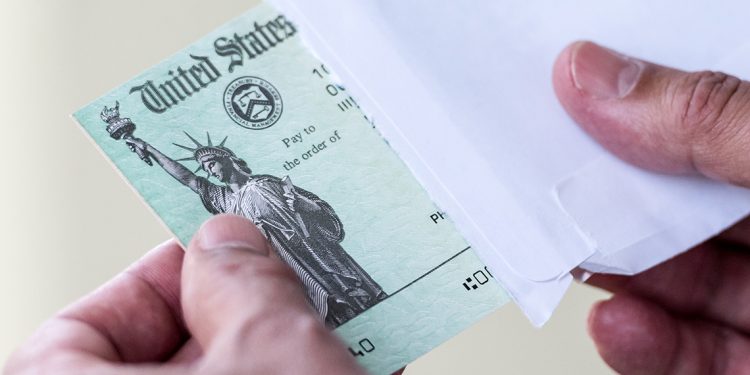During the COVID-19 pandemic, the Internal Revenue Service (IRS) distributed three rounds of economic impact payments or stimulus checks.
Qualifying Americans typically received between $1,200 and $1,400 per stimulus check, with the final payments sent out in March 2021.
Recently, there’s been a surge in Google searches about a new round of IRS stimulus checks for $8,700. VERIFY discovered multiple articles claiming that the IRS will issue these new $8,700 checks.
One website claims the new checks are part of a “broader initiative to stimulate the economy and assist individuals coping with financial difficulties during the epidemic.” Some sites also suggest these payments are linked to the child tax credit, a tax incentive for parents.
These sources generally claim the payments will be distributed in mid-June.
THE QUESTION
Is the IRS sending out $8,700 stimulus checks?
Is there really an $8,700 stimulus cheque?
Claims about the IRS issuing an $8,700 stimulus check recently surfaced online, with various unofficial sources citing a proposed expanded Child Tax Credit, according to The US Sun. These claims suggested that the proposal aimed to assist struggling families with monthly payments of $350 per child, totaling up to $8,700 over six months starting June 15th.
However, no official confirmation has been provided by any government agency. In response to these rumors, the IRS posted a tweet advising Americans to be cautious while filing their annual returns. “There are many different kinds of social media content,” the agency wrote on X, formerly Twitter, adding, “including tons of misleading tax advice that can put you at risk.”
No, the IRS is not sending out $8,700 stimulus checks.
The IRS is not distributing $8,700 stimulus checks. An IRS spokesperson directed VERIFY to a press release about scams promising new Economic Impact Payments.
The release notes that “while the stimulus payments ended long ago, the related scheme has evolved and changed as scam artists look for new ways to adjust their message to trick people.”
For new stimulus checks to be issued, Congress would need to pass legislation, and President Biden would have to sign it into law, which has not occurred.
The Child Tax Credit is also not issued as a $8,700 payment but as a credit associated with tax returns for eligible families. Although this credit amount was temporarily increased during the pandemic, it has since reverted to its normal amount.
These false articles are typically created by content farms that “regurgitate dubious information and often rely on AI-generated articles with little or no human oversight,” McKenzie Sadeghi, AI and foreign influence editor for NewsGuard, previously told AARP.
The scam articles aim to inform readers about “exclusive” or “new” benefits that don’t exist to draw as many people as possible to their websites, which feature numerous advertisements.
“By bringing viewers and readers to their sites, they hope people will click on these advertisements, generating financial revenue,” Sadeghi says.
If the article’s information source is unclear, that’s a red flag, Sadeghi adds.
To avoid falling for these fake articles, Sadeghi recommends scanning for information that doesn’t add up and unnecessary repetition of key phrases.
Many articles about the nonexistent stimulus checks have discrepancies. For example, one website begins by stating the checks are “worth $8,700 in total.” Later, it claims the proposed stimulus will provide $8,700 in monthly payments to qualifying families, with a “maximum monthly payment” of $1,450.
Despite the conflicting claims about the payment being monthly or once a month, the website states there will be one payment on June 15 and a second on December 15.
The website also mentions a “new financial aid initiative” started by the federal government but never specifies what the new program is or when it was created. There’s no clear source or sense of credibility for the author or the claims.
These content farm articles are very common. VERIFY has previously debunked multiple claims spread by these websites.
Google results that highlight these suspicious websites may also amplify false information. When VERIFY searched for “8,700 stimulus check” on Google, the top result was a suspected content farm website full of misinformation.
THE SOURCES
- Internal Revenue Service
- AARP
- VERIFY analysis of an article from “La Grada”
The official IRS website should be the primary source for any programs or updates.










